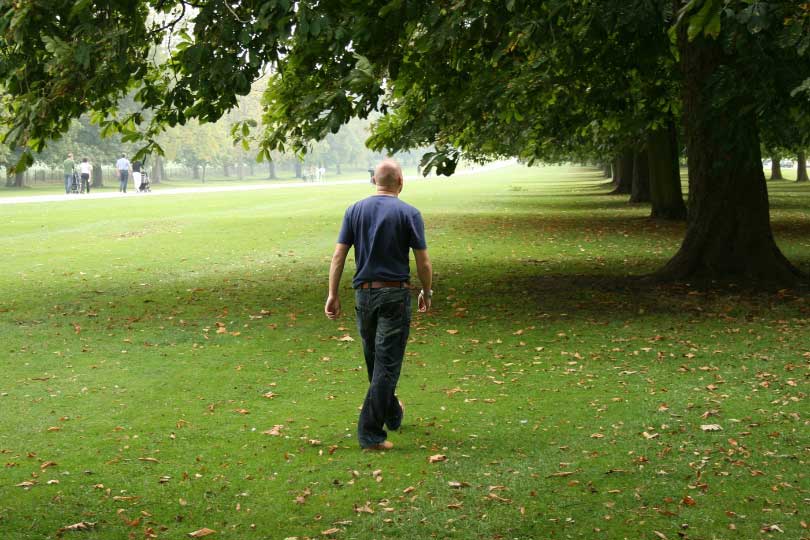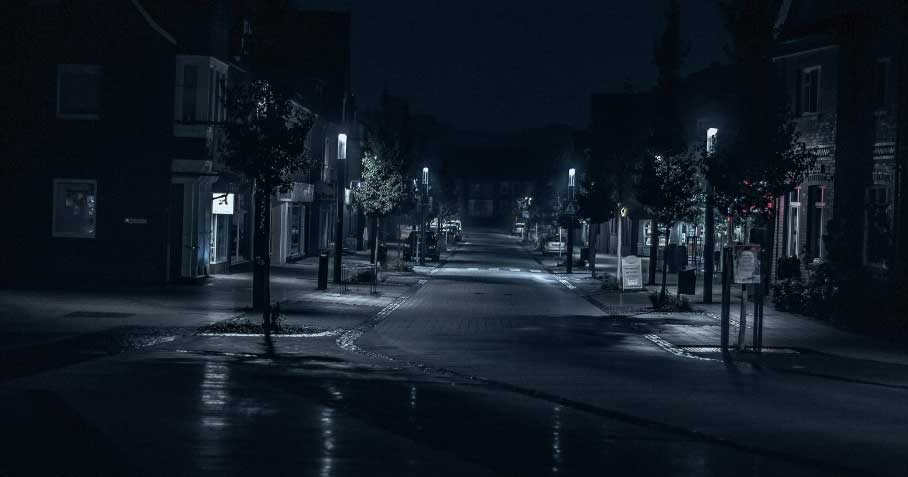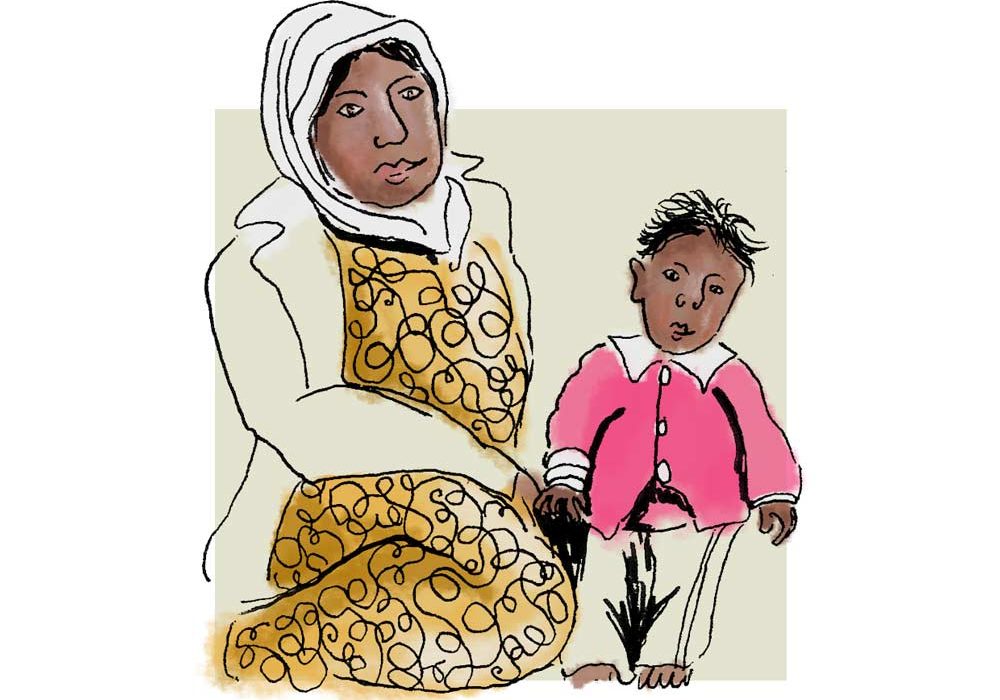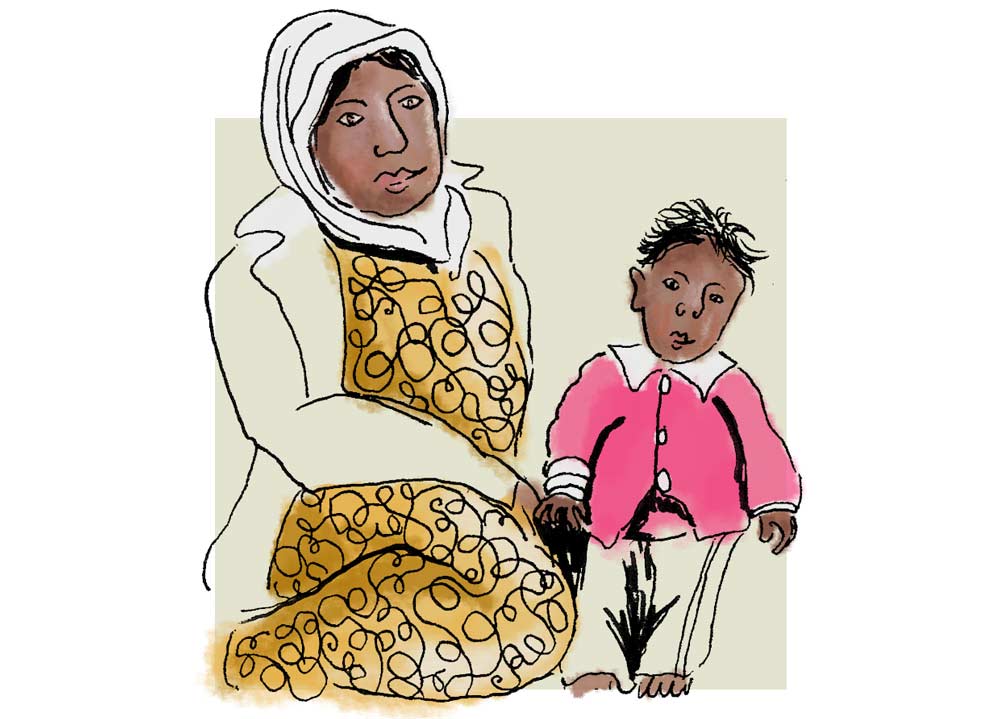

Vasile arrived in the UK from Romania in 2014. His hope was to work and send money back to Romania to help his family. Initially Vasile was in London. He worked various cash in hand jobs – at car washes, on building sites, cleaning – but he was often ripped off. As he didn’t sign contracts he was often paid too little or repeatedly told he would be paid next week. Vasile never had anywhere to live and was sleeping rough.
After a couple of years Vasile left London for Bristol because he had heard that people there were more helpful. But after he arrived in Bristol he continued to live on the streets. Bristol City Council knew about Vasile and his situation as they delivered food to him twice a day: but still he was homeless. After a year or two, Vasile’s wife also came to join him in the UK. He and his wife slept rough together on the streets and in the parks of Bristol.
It wasn’t until the Covid-19 pandemic in 2020 that Vasile was finally housed. He was put up in a hotel in Bristol as part of the ‘Everyone In’ scheme, which aimed to house all homeless people in response to the public health emergency. This was because while living on the streets it is impossible for people to self-isolate to protect themselves or others from the virus. Stable accommodation made a huge difference for Vasile. He was able to wash himself and his clothes regularly, and he had facilities to make himself small meals.
However, this was also a difficult time. Vasile’s wife had fallen ill with lung cancer and was receiving treatment in hospital. Her prognosis was not good and towards the end of 2020 their GP was able to help them access some funds so she could return to Romania to continue her treatment and see family, including their nine children. In early 2021, Vasile’s wife passed away in Romania. This was an extremely difficult time for Vasile, and his mental health suffered. But he felt lucky to have friends in Bristol who supported him, as well as access to his GP for medical help.
As lockdown was eased again in the UK, the national government ended funding for the ‘Everyone In’ programme on May 17th 2021, saying that the public health emergency had passed. For Vasile this meant he was homeless yet again – sleeping rough in an underpass with another friend. Being back on the streets only compounded his mental health struggles. Some of Vasile’s other friends had managed to access support through the help of Bristol City Council and St Mungos while they were staying in hotels. They were now receiving benefits and in, or waiting for, housing allocations.
Vasile had also been supported to make an application to the European Union Settlement Scheme (EUSS). Having been in the UK for more than 5 years, he should have been eligible for settled status, which would allow him access to benefits and housing support. But Vasile had very little documentary evidence of his time in the UK. Despite multiple applications he had never received a National Insurance number, there were no records of the exploitative work he had undertaken, and as a rough sleeper he had no records of housing – it was going to be difficult to prove his entitlements.
At the time of meeting Caroline, Bristol Refugee Rights’ Member Participation Organiser, in May 2021, Vasile was still waiting to hear from the Home Office about his EUSS application. It is anticipated that he will be given pre-settled status (given to those who have been in the UK for less than five years as of December 31st, 2020). While this will be a big step in his journey towards getting off the streets, the Home Office is currently fighting attempts to ensure that people with pre-settled status are able to access the social security net in the courts. It is still unclear if with pre-settled status Vasile will be able to access the help he needs to change his situation. He says “the council has known about my struggles for a long time, but still things don’t change.”
Vasile now sells the Big Issue in Bristol to get a small income. Despite the challenges he has faced in the UK, he still hopes to stay here. He says that only in the UK will he be able to earn money to help his family back in Romania. In Romania, he says, it’s hopeless. Although Vasile blames the local council for his situation, NRPF conditions and entitlements and in many cases what local authorities can do about it are set by the national government.
Vasile feels left behind. He says he knows other people who have been in the UK a shorter time than him and who have never worked but are receiving support in terms of benefits and housing. Vasile’s message following his years of living in the UK without access to public funds is twofold. He says that accommodation is crucial and can completely change someone’s life. Moreover it is difficult to see others access support while not being able to access any yourself.
These stories are from a project supporting people to tell their stories and the views expressed are their own. Due to protecting people’s voice and privacy, we have not given statutory authorities the opportunity to respond and we appreciate they may present a different perception of the individual’s situation.


Names have been changed on the request of the member.
Mounish has lived in Bristol for twelve years but it has been a very difficult twelve years. He visited the UK several times before he decided to move here permanently and always liked Bristol, as it has a very welcoming community. So, when he was forced to flee Bangladesh, that’s where he decided to come.
In Bangladesh Mounish was involved in politics as a member of an opposition party. He felt he was no longer safe there due to his political activities. He received threats to his life and made the difficult decision to leave his home country and family behind. Mounish arrived in the UK on a visitor’s visa and when his visa ended he remained in the UK without any contact with the Home Office. The rumours in the community were that if you made an application to the Home Office you would be deported back to Bangladesh: and so in fear Mounish lived under the radar. He had no idea where to go to get legal advice, or that there was any organisation in Bristol that could provide support and advice to people in situations like his. Mounish lived with other members of the Bangladeshi community who would give him space in their homes. He survived by taking on work at local restaurants who would ‘pay’ him by giving him food or sometimes small amounts of cash.
This life continued until 2018, when the restaurant that Mounish was working in was raided by immigration officials – without papers, he was taken away and detained. At this time Mounish’s health was very poor as he was struggling to manage diabetes, so his detention was spent in a medical facility. It was only at this point of crisis that he first sought the advice of a solicitor and heard about organisations in Bristol that could offer advice and support to people like him. Hearing about Mounish’s experiences, the solicitor advised that he submit an asylum claim. With his asylum claim submitted, Mounish returned to life in Bristol. With his new community knowledge he started to receive a £10 a week destitution payment from the Red Cross which he could use to buy essentials and pay to travel to appointments in Bristol. He also started volunteering at local organisations. Mounish loves to give back and was always involved in a lot of voluntary work in Bangladesh.
Mounish’s physical and mental health remains poor. He has been in the UK for twelve years now and has only been able to see his family in Bangladesh, where he has a wife and two children, via video call. Mounish worries about his family; who continue to be harassed by the police. He believes this is because of his previous political activity. He has been diagnosed with depression and is accessing counselling through the NHS. Despite this, he struggles with suicidal thoughts and often feels hopeless.
“Living is not good for me – sometimes I think I want to die.”
“I never dreamed of a life like this.”
In 2021, Mounish’s asylum application was refused by the Home Office and this decision was upheld on appeal. Mounish says the Home Office don’t think he is a genuine asylum seeker as they say he has just come to the UK to work and send money back to his family. Those years in Bristol in which Mounish did not have the right information and was too afraid to seek legal advice and make an application to the Home Office have had a big impact on his ability to make a successful asylum claim. Mounish says his solicitor is still confident that he has a strong case and that the Home Office should change their decision. He has a list of additional evidence to support his case which his solicitor recommended he gather in order to submit a fresh claim. Much of this involves his family trying to get access to evidence back in Bangladesh – something that is even more difficult than usual at the moment due to Covid restrictions. Without a successful application for leave to remain in the UK, Mounish’s life in Bristol continues: without a right to work, supported only by charities and his community to survive.
“I have nowhere to go, but I’m also not here either.”
These stories are from a project supporting people to tell their stories and the views expressed are their own. Due to protecting people’s voice and privacy, we have not given statutory authorities the opportunity to respond and we appreciate they may present a different perception of the individual’s situation.


Names have been changed on the request of the member.
Victoria arrived in the UK in 2004 from a country in Africa. She had a work visa which was valid for two years and worked as a domestic cleaner in Southport. After two years she had to apply to extend her visa and was successful in receiving a one year extension from the Home Office. Victoria’s visa was subject to the No Recourse to Public Funds condition (NRPF). This meant she had to be completely self-sufficient in the UK, as she was not eligible to access the social security net. In 2006, Victoria moved to Bristol as she had some family friends living in the city. Every year she applied to have her visa extended by the Home Office and continued to work and support herself.
Everything changed in 2010 when her visa extension request was refused by the Home Office. They said she did not have enough money in her bank account. Victoria could not afford a lawyer to help her challenge or understand this decision. She had suddenly become an undocumented migrant in the UK. No longer able to work, Victoria was completely reliant on the community and her family friends for support. Victoria slept in different people’s living rooms – constantly reliant on others to survive.
“This time was very, very difficult – sometimes I don’t want to remember this time. When I think about it I get anxious.”
Victoria’s health was impacted by her situation: at one point her blood pressure reached over 200 mmHg. She felt very worried about her health. She was supported by her GP but struggled to be honest with the GP about her situation – she was scared that if anyone found out that she was undocumented she might be reported to the Home Office, detained and deported.
In 2015 Victoria had a son. Now things were even harder. When she was asking the community for help and places to stay she was asking for two, not just one. She was completely reliant on hand me downs of old baby clothes. Victoria felt like a bad mum – unable to give her son anything. Victoria and her son spent years living this way until a friend told her about the Asylum Team at Bristol City Council. Before she called them, Victoria fully researched the support they might be able to offer. Victoria was at breaking point: she called the asylum team and requested a face to face appointment. For the first time she told a professional her full situation.
As Victoria had a young child, under Section 17 of the 1989 Children’s Act the Asylum Team were able to offer Victoria and her son accommodation. They also helped Victoria with money both for groceries and to enable her son to attend school. Victoria and her son now live in a small one bedroom flat paid for under Section 17. They have their own kitchen and bathroom. While this is much easier than when they were sofa surfing, it is still challenging: Victoria and her son have to share a bed, and as her son grows Victoria feels more and more uncomfortable about this. Victoria has asked whether or not it would be possible to get a two bedroom place so that she and her son can have some privacy but has been told that she is lucky to have the place she has – other families on Section 17 support do not have their own kitchens and bathrooms.
Victoria finds it hard to think about the future. She wants the best for her son, but continues to feel that she has not provided for him. The ongoing uncertainty of her position also makes it hard to think about the future.
“Even things you think you could do this for my son like join a football team, you are scared that they will ask about your immigration status.”
“I don’t know the way forward. I can’t plan.”
The Asylum Team have helped Victoria to access an immigration solicitor who is working with her to see what immigration options are open for Victoria and her son to regularise their status in the UK. Victoria worries about her son and what will happen for him if they are not successful in getting documents to remain in the UK. She also struggles to explain their situation to him. He has started asking her about travelling: he wants to get a passport and travel abroad like he sees his friends at school do. Victoria does not know how to tell him that they can’t do this because they are undocumented in the UK. Instead she puts off this difficult conversation, telling him this is something they will do when he is older and in secondary school.
“Children are innocent in this. They don’t belong in any other place. The only place they know is here. My son, he does not even speak my language.”
Victoria says people like her are “just piling up”: the Home Office doesn’t give them leave to remain or turns down their applications to stay, but it also doesn’t deport them. Meanwhile, she sees news about skills shortages and the need to recruit for certain roles from abroad and feels frustrated.
“There are people here with skills. People who want to work but don’t have the right. People who could fill those positions in care jobs, in nursing if they were given the training and the opportunity to do so”.
These stories are from a project supporting people to tell their stories and the views expressed are their own. Due to protecting people’s voice and privacy, we have not given statutory authorities the opportunity to respond and we appreciate they may present a different perception of the individual’s situation.

by Caroline Broman, Bristol Refugee Rights’ Member Participation Organiser.

Bristol Refugee Rights (BRR) and The Refugee and Migration Policy Project (RAMP) are working on a project looking to improve support for individuals who are subject to ‘no recourse to public funds’ in Bristol. No recourse to public funds (NRPF) is a condition attached to different immigration statuses. It affects many different people: individuals here on working visas, student visas or spousal visas, families, EU Citizens, Refused Asylum Seekers or any undocumented individuals in the UK.
In essence, it means for that individual or family there is no safety net as they are not able to access mainstream benefits or housing support. Thus if they are homeless or destitute they cannot get support from the local authority or central government. This all changed during Covid-19 with the ‘Everyone In’ policy – a public health response that housed all homeless people irrespective of them being subject to the NRPF condition. In Bristol this highlighted something that BRR has been aware of for a long time: the extent of the issue as the number of Bristolians left destitute by NRPF conditions became evident. It also showed what was possible; with housing provided, BRR and other partner organisations were able to give these individuals the advice and support they needed to change their status: meaning they would not need to be homeless or destitute again.
With the end of the ‘Everyone In’ policy BRR and RAMP are working to influence and advocate to see what long term support we can get in place for those subject to NRPF conditions in Bristol. This project aims to create long term systemic change helping to ensure some of the most vulnerable people don’t fall through the cracks. In this push we have been working closely with the local council and individuals with lived experience of being subject to NRPF who have shared their stories and their visions for a more supportive Bristol. The following blog series shares with you their stories of life under the NRPF condition and how it has impacted them as well as the hope for what can happen when support is put in place for Bristolians.


All illustrations by Laurel Molly. Find her on Instagram @laurel_molly.
The Early Years Project run by Bristol Refugee Rights (BRR) provides a safe and happy space for children and their parents. Our community is supported by a skilled and experienced staff team and dedicated volunteers. There is a crèche where parents can leave their children to play safely and happily whilst they access vital services support. There is also a parent support group and a team of Family Support Workers. As the vast majority of our parents and children are new to the UK with no family or friends, this project provides essential assistance to those in need. Many of us are familiar with the African proverb ‘It takes a village to raise a child’. It’s easy to take this for granted, but for parents and children seeking sanctuary, the village is what is missing.
The support of volunteers enriches the Early Years Project by ensuring that every child receives undivided attention. These volunteers notice things, give encouragement , and they show patience and care. Our volunteers are like family members to some of our children and their parents, providing reassurance and a warm and welcoming presence. Tilly, who began volunteering with BRR in 2015 and has remained closely involved ever since, explained that being able to contribute to the life of a new mother, newly arrived in the UK and with no family or friends, felt very important to her. Reflecting on her time volunteering with us, she said that she always hoped that within her ‘Welcome’ role, she would be able to help a parent feel lifted, not alone and that their child was important. By talking with parents, sharing a meal with them, chatting to them about their child – simple things – she wanted to help that parent feel valued and part of a community. That they mattered.
When Tilly inherited some money, she decided that she wanted to make a donation to the Early Years Project. Having worked with children for years in her own career, she knew that the work being done was hugely important. When asked why she wanted to donate to the Early Years Project, she said:
“These children, they’re the next generation. For each parent, their sense of selves and their child’s happiness – it means everything. I remember that, even with my own children, I’ve always felt that you are only ever as happy as your least happy child. So what the children of asylum seekers can gain through the Early Years Project will make a huge difference to them, but not just to the child, to their parent as well. Everyone benefits when you invest in children.”
Tilly’s generous donation will help Bristol Refugee Rights to continue to fund this hugely important project, which is unique in Bristol. We are so grateful to her for generosity.
If you are inspired by Tilly’s example and would like to support a specific area of our work, please get in touch: . If you would like to find out more about leaving a gift in your will to our charity, please visit our website.
By Anna Burness






